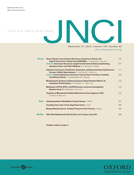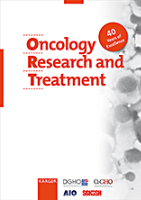
BMC CANCER
Scope & Guideline
Fostering Collaboration in the Fight Against Cancer
Introduction
Aims and Scopes
- Cancer Biology and Mechanisms:
Research exploring the molecular and cellular mechanisms underlying cancer development and progression, including studies on genetic mutations, epigenetic changes, and tumor microenvironment interactions. - Clinical Oncology and Treatment Strategies:
Investigations into various treatment modalities for cancer patients, including chemotherapy, radiotherapy, immunotherapy, and novel therapeutic agents, along with studies assessing treatment efficacy and safety. - Epidemiology and Public Health:
Studies addressing cancer epidemiology, including risk factors, incidence, prevalence, and survival rates, particularly in diverse populations and underrepresented communities. - Biomarkers and Early Detection:
Research focused on identifying novel biomarkers for cancer diagnosis, prognosis, and treatment response, as well as studies on screening methods and technologies for early cancer detection. - Patient-Centered Outcomes:
Investigations into health-related quality of life, patient experiences, and psychosocial aspects of cancer care, highlighting the importance of patient perspectives in oncology. - Translational Research:
Studies bridging laboratory findings with clinical applications, aiming to translate basic research discoveries into effective cancer therapies and improved patient outcomes.
Trending and Emerging
- Immunotherapy and Immune Profiling:
Research on immunotherapy, including immune checkpoint inhibitors and CAR-T cell therapies, is rapidly increasing, focusing on understanding immune responses and patient stratification based on immune profiles. - Microbiome and Cancer Relationships:
An emerging area of interest is the relationship between the microbiome and cancer, with studies exploring how gut microbiota influences cancer development, treatment responses, and patient outcomes. - Precision Medicine and Genomic Profiling:
There is a growing emphasis on precision medicine, with researchers focusing on genomic profiling to tailor treatments based on individual patient characteristics and tumor genetics. - Patient-Reported Outcomes and Quality of Life:
Increasing attention is being paid to patient-reported outcomes and quality of life assessments, emphasizing the importance of holistic care and survivorship issues in cancer management. - Artificial Intelligence and Machine Learning in Oncology:
The integration of AI and machine learning techniques in cancer research is gaining traction, with applications in early detection, treatment prediction, and personalized therapy planning. - Long Non-Coding RNAs in Cancer:
Research into long non-coding RNAs as potential biomarkers and therapeutic targets is on the rise, reflecting a broader interest in the regulatory roles of non-coding RNA in cancer biology.
Declining or Waning
- Traditional Chemotherapy Studies:
There has been a noticeable decrease in studies solely focused on traditional chemotherapy regimens, as the field shifts towards exploring combination therapies and personalized treatment approaches. - Basic Science without Clinical Relevance:
Research articles that focus exclusively on basic science findings without clear clinical implications are becoming less prevalent, as the emphasis now leans towards translational research with direct applications in patient care. - Single-Institution Studies:
The trend is moving away from single-institution studies towards multi-center collaborations and larger cohort analyses, which provide more generalizable results and insights. - Longitudinal Studies without Novel Insights:
Longitudinal studies that do not introduce new methodologies or significant findings related to cancer treatment or patient outcomes are less frequently published, reflecting a preference for innovative research.
Similar Journals

JNCI-Journal of the National Cancer Institute
Advancing cancer research for a brighter tomorrow.JNCI-Journal of the National Cancer Institute, published by Oxford University Press Inc. in the United Kingdom, is a premier journal dedicated to advancing the field of cancer research and oncology. With a distinguished history dating back to 1940, this journal has consistently maintained a strong reputation within the academic community, achieving a remarkable Q1 ranking in both Cancer Research and Oncology as of 2023. Researchers and practitioners rely on the JNCI for original research articles, review papers, and cutting-edge findings that impact clinical practices and therapeutic strategies. Although it does not currently offer open access, the journal remains a vital resource for academicians and healthcare professionals seeking to enhance their understanding of cancer mechanisms and treatment innovations. Its rigorous peer-review process ensures the publication of high-quality, credible research that meets the evolving challenges of cancer treatment and prevention through to 2024.

BREAST CANCER RESEARCH AND TREATMENT
Advancing the Fight Against Breast CancerBreast Cancer Research and Treatment, published by Springer, stands as a pivotal journal within the domains of Cancer Research and Oncology, exemplified by its impressive Q2 and Q1 quartile rankings, respectively, in the 2023 category rankings. Since its inception in 1981, this journal has provided a vital platform for disseminating cutting-edge research focused on all aspects of breast cancer, ranging from molecular biology to treatment strategies. With an ISSN of 0167-6806 and E-ISSN of 1573-7217, it captures a broad audience of researchers, clinicians, and students dedicated to improving patient outcomes. The journal emphasizes high-quality, peer-reviewed studies that pave the way for advancements in therapy and direct novel insights into oncological practices. By maintaining a strong ranking in Scopus with percentile placements of 74th in Oncology and 61st in Cancer Research, Brest Cancer Research and Treatment continues to foster innovation and collaboration in the fight against breast cancer.

CANCER CELL
Your Essential Resource for Cutting-Edge Cancer StudiesCancer Cell, published by Cell Press, represents a pinnacle of research in the fields of cancer research, cell biology, and oncology. With an impressive Impact Factor and ranking as Q1 in prestigious categories for both 2023 and previous years, this journal stands out as a vital resource for professionals and scholars dedicated to understanding the molecular underpinnings of cancer. Operating from Cambridge, MA, Cancer Cell has been an essential platform for innovative studies since its inception in 2002. Although it is not an Open Access journal, its rigorous peer-review process ensures that only the highest quality research is disseminated to the scientific community. Readers can expect to find a wealth of knowledge ranging from cutting-edge therapies to insights into tumor biology, thereby contributing significantly to the advancement of oncology. With rankings placing it among the top echelons of related fields—#2 in Cancer Research and #6 in Oncology—Cancer Cell is an indispensable reference for anyone committed to the fight against cancer.

Frontiers in Oncology
Empowering breakthroughs in cancer treatment and care.Frontiers in Oncology is a premier open access journal dedicated to advancing the field of oncology through innovative research and knowledge dissemination. Published by FRONTIERS MEDIA SA since 2011, this journal is based in Switzerland and holds an impressive Q2 ranking in both Cancer Research and Oncology as of 2023, highlighting its significance in the academic community. With its commitment to open access, Frontiers in Oncology ensures that vital research is readily available to researchers, healthcare professionals, and students around the globe, enhancing collaboration and fostering breakthroughs in cancer research. The journal's robust Scopus rankings further illustrate its academic influence, with notable positions in the fields of Oncology and Cancer Research. By covering a wide range of topics within oncology, this journal serves as a vital resource, supporting the rapid evolution of cancer treatment, diagnostics, and patient care strategies.

Cancer Research Communications
Advancing the frontiers of cancer knowledge.Cancer Research Communications is an esteemed journal published by the American Association for Cancer Research, a leading organization in the field of oncology. This journal aims to advance knowledge in cancer research through the dissemination of high-quality, peer-reviewed articles that cover a wide range of topics related to cancer biology, treatment modalities, and prevention strategies. As an open-access journal, Cancer Research Communications ensures that vital research findings are accessible to a global audience, promoting collaboration and innovation within the scientific community. The journal serves as a crucial platform for researchers, professionals, and students to share their insights and foster the exchange of effective cancer therapies and methodologies. With a commitment to excellence, it plays a significant role in shaping the future of cancer research and therapeutic development.

CANCER AND METASTASIS REVIEWS
Advancing the Frontiers of Cancer ResearchCancer and Metastasis Reviews, published by Springer, is a leading journal in the field of oncology and cancer research. With an impressive impact factor placing it in the Q1 category for both Cancer Research and Oncology as of 2023, this journal is ranked 29th out of 404 in Medicine, Oncology, and 22nd out of 230 in Biochemistry, Genetics, and Molecular Biology, reflecting its significant influence and prestige in the academic community. Established in 1982, the journal covers a wide spectrum of topics related to the mechanisms of cancer progression and metastasis, making it an essential resource for researchers, healthcare professionals, and students dedicated to understanding and tackling cancer. Although the journal does not provide open access options, the impactful research it publishes contributes to advances in therapeutic strategies and enhances the collective knowledge surrounding cancer pathophysiology. With research converging from 1982 to 2024, Cancer and Metastasis Reviews continues to be a vital platform for disseminating high-quality scientific information in the ever-evolving landscape of cancer research.

Cancer Reports
Championing innovation in oncology research.Cancer Reports, published by WILEY, is an esteemed open-access journal dedicated to the field of oncology and cancer research. With a focus on disseminating impactful research findings since its transition to fully open access in 2021, Cancer Reports aims to facilitate knowledge sharing among researchers, clinicians, and healthcare professionals globally. The journal is positioned within the Q3 quartile for both Cancer Research and Oncology categories as of 2023, reflecting its commitment to quality and relevance in a competitive publishing landscape. With an ISSN of N/A and an E-ISSN of 2573-8348, the journal showcases studies across diverse aspects of cancer biology, treatment modalities, and patient care strategies. Located in the United Kingdom at 111 River St, Hoboken 07030-5774, NJ, Cancer Reports strives to contribute to the advancement of cancer research and improve health outcomes for patients worldwide, making it a pivotal platform for scholars and practitioners in the oncology community.

Cancers
Advancing cancer research for a healthier tomorrow.Cancers is a leading peer-reviewed journal published by MDPI, dedicated to advancing the field of oncology and cancer research. Established in 2009 and based in Switzerland, this Open Access journal provides a platform for the rapid dissemination of high-quality research findings, reviews, and clinical studies related to all aspects of cancer biology and treatment. With an impressive impact factor and recognized as Q1 in Oncology and Q2 in Cancer Research for 2023, Cancers strives to foster a collaborative environment among researchers, healthcare professionals, and students seeking to deepen their knowledge and understanding of cancer. The journal’s commitment to accessibility and its broad scope make it an invaluable resource for anyone passionate about combating cancer and improving patient outcomes. For more information and to access its diverse publications, visit the journal’s website.

Oncology Research and Treatment
Uniting researchers to combat cancer effectively.Oncology Research and Treatment, published by KARGER, is a highly regarded academic journal dedicated to advancing the field of oncology through rigorous research and clinical insights. With a history spanning from 1978 to 1997 and continuing from 2013 to 2024, this journal provides a vital platform for researchers and professionals in cancer research, hematology, and related disciplines. Though currently listed in the Q3 tier of 2023 for Cancer Research, Hematology, and Oncology, its growing readership and open access policy enhance its visibility and impact within the scientific community. Based in Switzerland, the journal features diverse access options, reflecting the global importance of oncology research. With a focus on innovative treatments and the latest methodologies, Oncology Research and Treatment plays a crucial role in fostering collaboration and dialogue among researchers, professionals, and students alike, helping to shape the future of cancer care and management.

BULLETIN DU CANCER
Advancing cancer research for a healthier tomorrow.BULLETIN DU CANCER is a pivotal academic journal dedicated to the field of oncology, providing a platform for innovative research and insights into cancer treatment and diagnostics. Published by Elsevier Masson, Corp Off in France, this journal has been a part of the scientific community since 1966, and is committed to sharing critical findings that influence clinical practices and improve patient outcomes. Despite its recent rankings placing it in the Q4 category for Cancer Research and Q3 for Hematology and other related fields, BULLETIN DU CANCER remains essential for those interested in the latest developments in cancer biology and treatment methodologies. With an emphasis on both basic and clinical research, it serves as a valuable resource for researchers, healthcare professionals, and students seeking to deepen their understanding in various dimensions of oncology. This journal is particularly relevant as it continues to spotlight emerging research trends and supports the global imperative to combat cancer more effectively.